Introduction
Ever found yourself confused between the terms “pay stub” and “paycheck”? You’re not alone. While they might seem interchangeable, understanding the distinction is crucial—especially if you’re applying for a rental property, car loan, or SBA loan. At FinancialDocsProvider.com, we specialize in clarifying financial complexities and providing edited financial documents that meet your specific needs.
Pay Stub vs Paycheck: What Exactly Are They?
What is a Paycheck?
A paycheck refers specifically to the actual payment you receive from your employer. This can be:
- A paper check
- Direct deposit into your bank account
It represents the total money earned for the pay period, minus applicable deductions.
What is a Pay Stub?
A pay stub, also known as a paycheck stub or payslip, is the detailed breakdown accompanying your paycheck. It outlines exactly how your final payment was calculated, including:
- Gross wages
- Taxes withheld (federal, state, local)
- Social Security and Medicare deductions
- Health insurance and retirement contributions
- Net pay (take-home pay)

Why is Understanding the Difference Important?
Knowing the difference is essential because:
- Rental Applications: Landlords usually request pay stubs to verify consistent income.
- Loan Approvals: Banks and lenders require pay stubs as proof of steady income and financial reliability.
- Financial Management: Reviewing your pay stubs helps you identify errors or discrepancies in payment or deductions.
Common Mistakes People Make
Confusion often arises, leading to common mistakes:
- Using a paycheck alone as proof of income (lacks detail lenders need).
- Misplacing or discarding pay stubs, making financial documentation difficult later.
- Not reviewing pay stubs regularly, potentially missing errors that cost you money.
When to Use Pay Stubs and Paychecks
Use a Pay Stub:
- When applying for apartments, car loans, mortgages, or SBA loans.
- When verifying your employment and income details.
- When tracking your financial records for tax preparation.
Use a Paycheck:
- For immediate banking or cashing needs.
- As proof of direct payment (when requested).
How FinancialDocsProvider Makes Life Easier
At FinancialDocsProvider, we simplify your paperwork. Whether you’ve misplaced a pay stub or need a professionally edited pay stub quickly, our financial document editing services provide fast, accurate, and reliable solutions.
FAQ Section
What information is typically included on a pay stub?
Pay stubs usually include your employer’s information, your personal details, gross and net income, deductions (taxes, insurance, retirement), and pay period dates.
Can I use a paycheck instead of a pay stub for loan applications?
Most lenders prefer pay stubs because they detail your income and deductions clearly, while paychecks alone typically lack these important details.
What if I lose my pay stub?
If you lose your pay stub, FinancialDocsProvider.com can quickly provide professionally edited replacements to keep your application processes moving smoothly.
How long should I keep my pay stubs?
It’s recommended to keep your pay stubs for at least one year, or until you’ve verified your annual W-2 or tax filings are correct.
Can self-employed individuals have pay stubs?
Yes, self-employed individuals can generate pay stubs to document their income clearly, which helps in loan approvals and other financial situations
Need accurate, reliable financial documents fast? Contact FinancialDocsProvider.com now.

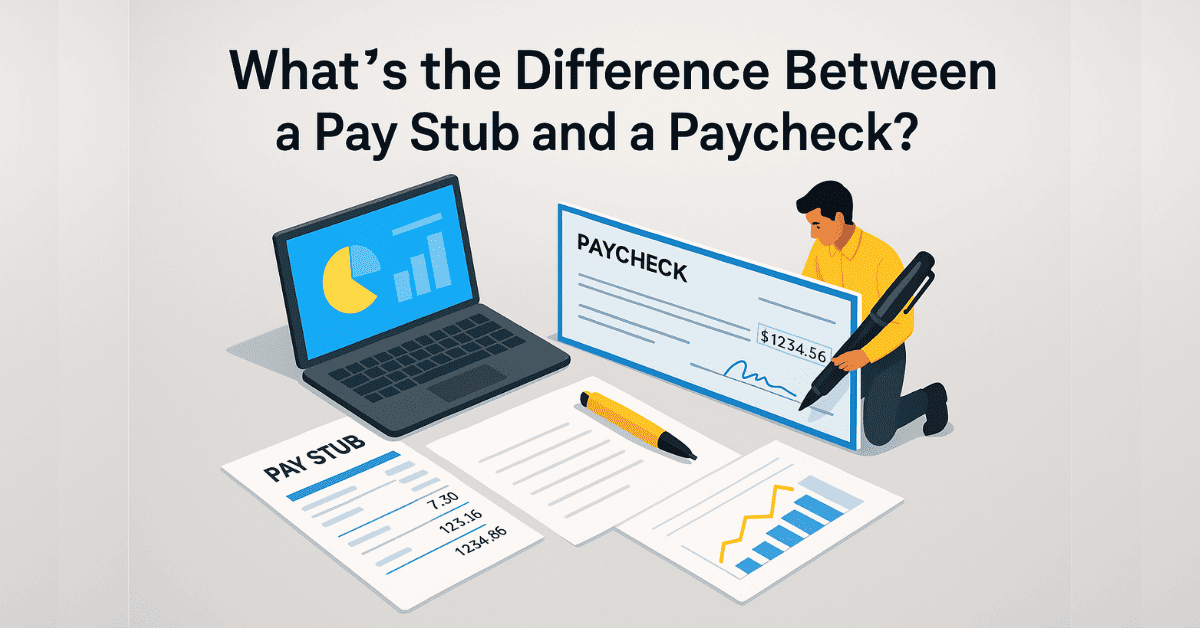
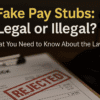

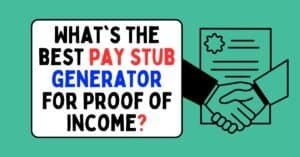
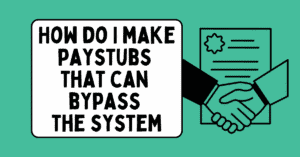

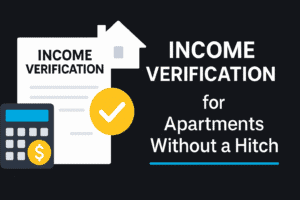
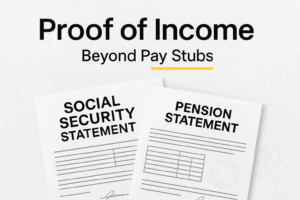
Add comment